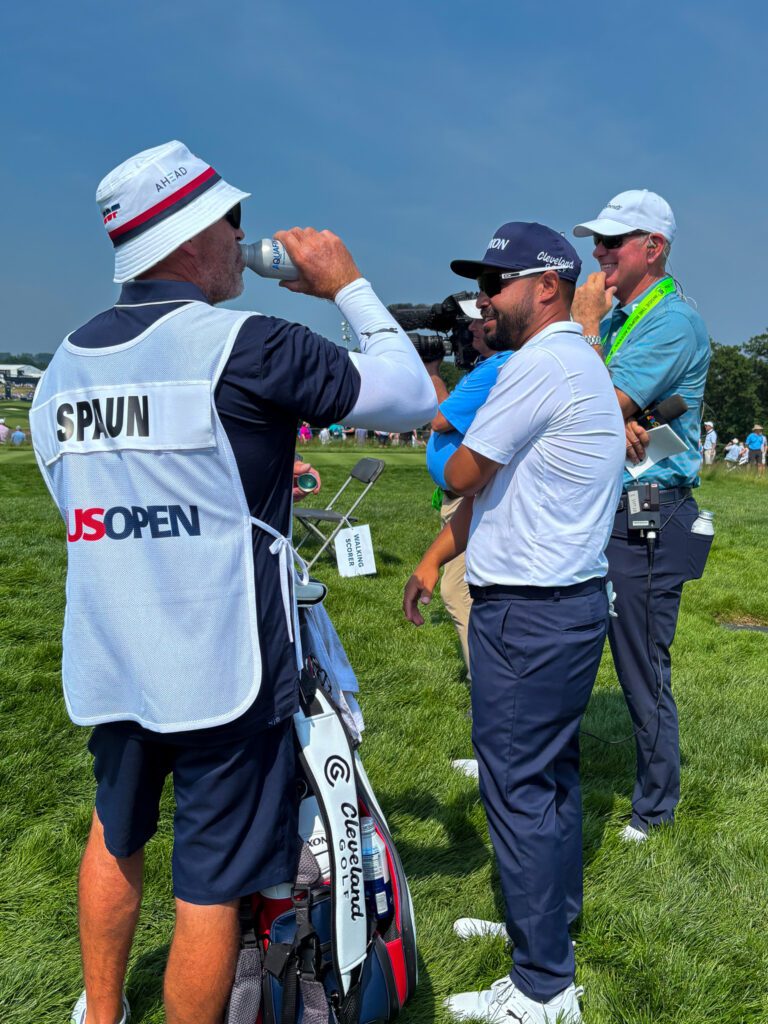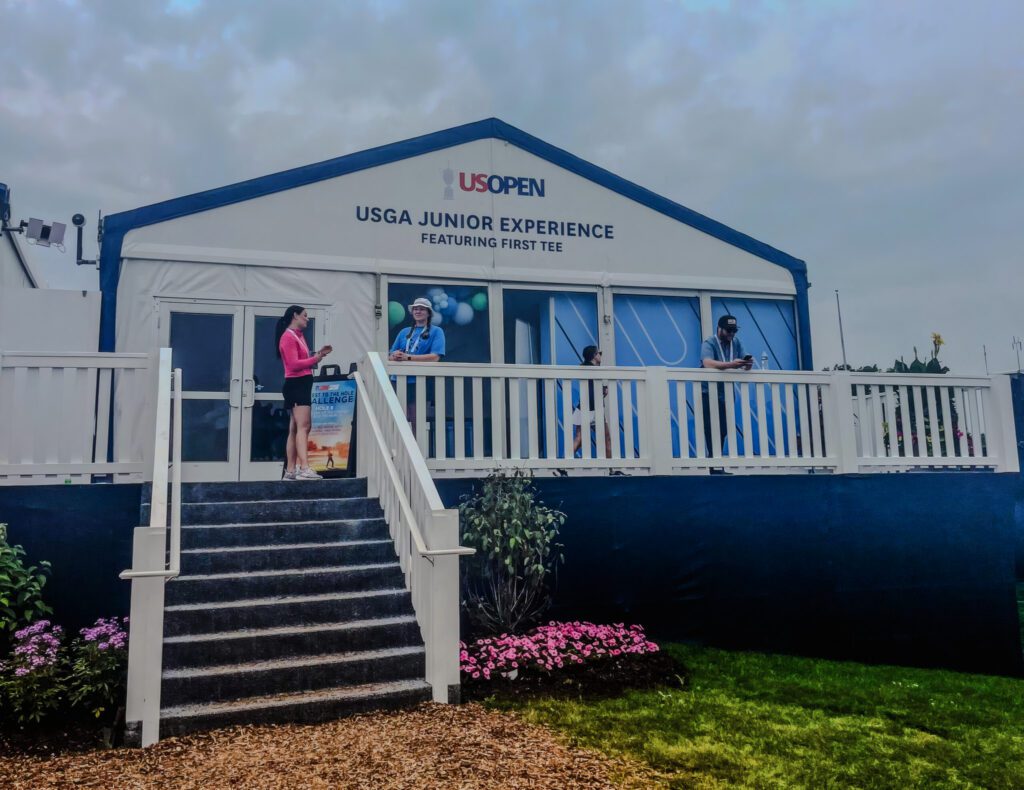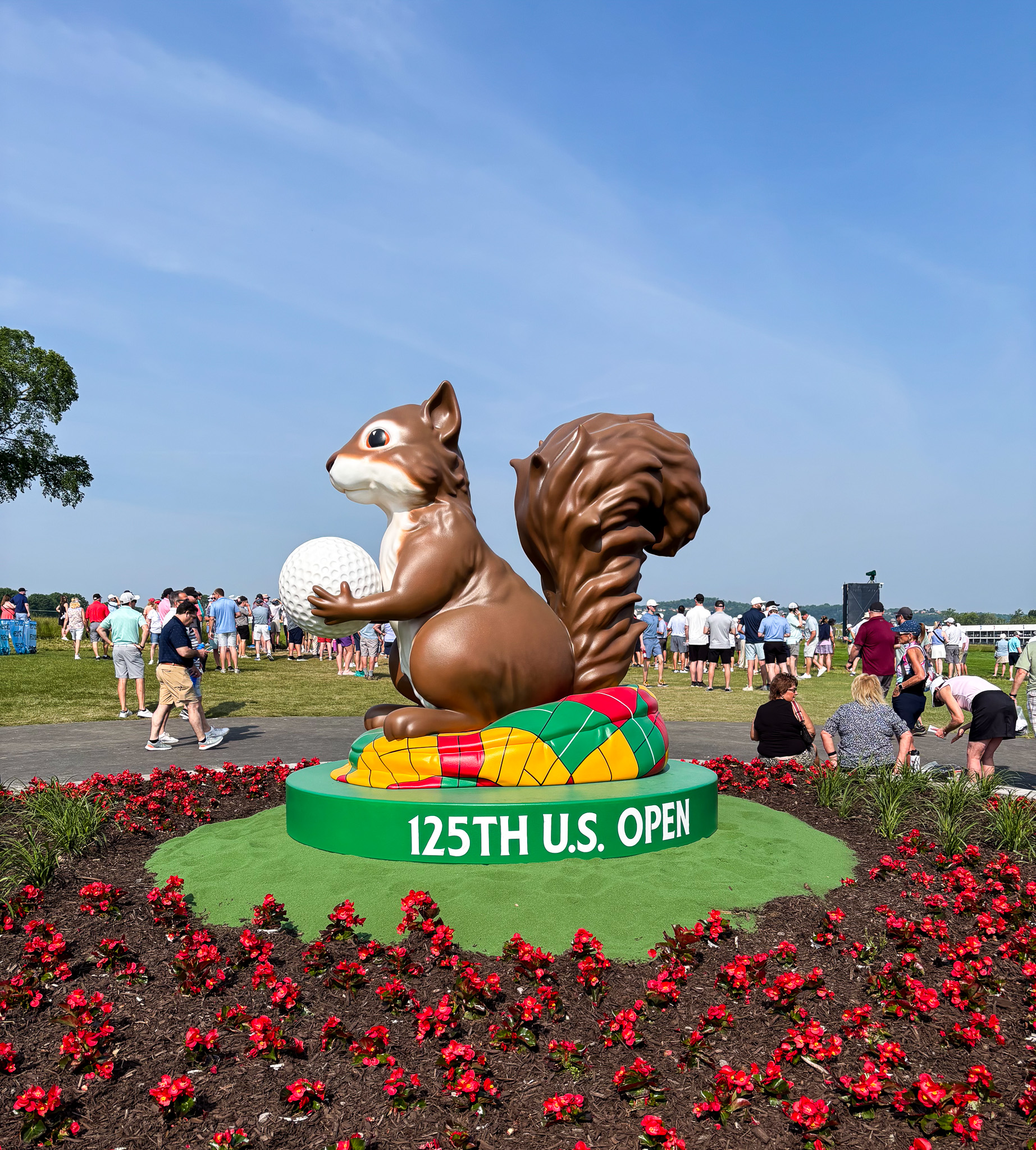By Isabel Volpe
Isabel Volpe is a 2025 Summer Intern at Pittsburgh Tomorrow. She attended the US Open at Oakmont and reflected on how the event embodies the spirit of Pittsburgh.
THE US OPEN RETURNS TO PITTSBURGH
Oakmont, Pittsburgh’s most prestigious and prominent country club, hosted the US Open last weekend. The Oakmont Country Club was established in 1903, as a place where golf made its headway in the City of Pittsburgh. In 2025, the Open brought much excitement, national coverage, and plenty of Pittsburghers together to watch great golf. The last time Oakmont hosted an Open was in 2016, and these events typically are great for Pittsburgh’s economy, bringing in a huge boost as local businesses gain an influx of tourists. The repeat event also brings a surge of national attention to our city of bridges, sparking attraction to the lure of Steel City.
Interestingly, Matt Vogt, a dentist originally from Pittsburgh who caddied at Oakmont, ended up qualifying for the Open this year—the unexpected turn of events made for an enthralling watch. Although he did not cut for the weekend, he expressed his enjoyment of just being out on the course. For other players who did make the cut, rain was a heavy theme. Scottie Scheffler, a favorite to win, did not play well Friday but was able to make the cut. Ultimately, many fought on Sunday, and JJ Spaun was the victor with a -1 total, the only player to have a cumulative score under par for the Open.

THE CHALLENGE OF THE COURSE
The course at Oakmont is unforgiving; according to Sports Illustrated, only 23 players have scored under par at Oakmont. Its hilly terrain, thick roughs, and abundant bunkers make the course one of the most difficult in the world, truly testing golfers physically and mentally.
The difficulty of the course began at its inception. One of the founders of the course, W.C. Fownes, believed that “A shot poorly played should be irrevocably lost,” meaning that one bad shot on the course is a recipe for disaster, thus instrumentally establishing and steering the course towards a reputation of difficulty. The Fownes family were known as strong-willed and unrelenting, with a firm focus on the sport of golf rather than the social aspect. Their ingenuity and engineering led to the creation of one of the most challenging courses in golf – an apt fit for the city of Pittsburgh.
ONE OF GOLF’S GREAT PIONEERS
Arnold Palmer, originally from Latrobe, PA, also played a significant role in the history of golf at Oakmont. He brought attention to the country club, particularly in the 1962 Open at Oakmont, where Palmer battled with Jack Nicklaus, an infamous moment in golf history that elevated Oakmont’s status as a reputable and distinguished course.
Arnold Palmer embodied the traits of what we at Pittsburgh Tomorrow refer to as a Pioneer: the first-movers, builders, and innovators who gave the Pittsburgh region its great legacy. Palmer came from a working-class background, and he used his talent and persistence to become a golf legend and one of Southwestern Pennsylvania’s great heroes. Palmer ignited local pride revolving around Oakmont and Pittsburgh, a spark whose legacy still exists today and continues to evolve.

The Pittsburgh Community Engaged

The Open had a variety of sponsors and interactive pavilions that allowed fans to really feel like a part of the game and the Oakmont experience. Historically, golf was a somewhat exclusive sport, but excitingly, it has been reclaimed as a sport for everyone–thanks in part to organizations like The First Tee. The First Tee is a national organization that has planted its roots right in the heart of Pittsburgh, on the Bob O’Connor Golf Course, which was gifted to the City of Pittsburgh in 2006. Since then, The First Tee has cultivated golf by engaging and developing kids’ skills. The organization believes that golf is not just about learning techniques to improve a young player’s game, but also about teaching them meaningful life skills.
The program makes golf accessible, which can be life-changing for kids. Seeing their role models playing in real life can also be a game-changer. The First Tee teamed up with Oakmont to make that dream a reality. At Oakmont, The First Tee produced the Game Changers Pavilion, “an interactive space for children, teenagers, and families, aiming to inspire young people to become ‘game changers’ within their communities.” This space enhanced the Oakmont experience for youth at the Open, giving them new experiences and opportunities.
A Lesson About Grit
Arnold Palmer, the course at Oakmont, and The First Tee all have something in common: they embody Pittsburgh’s legacy of grit. Grit requires perseverance, faith, and most of all, resiliency – traits that appear again and again in the stories of Arnold Palmer’s career, the challenge and prestige of the course at Oakmont, and the mission of the First Tee. At the 2025 US Open at Oakmont, attendees were immersed in the spirit of Pittsburgh: a place where pioneers thrive, innovation is fostered, and opportunity is unlocked. All you need is a little grit. ⛳️


